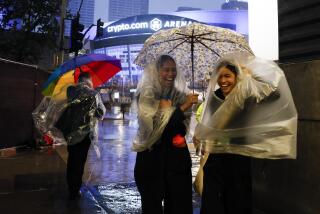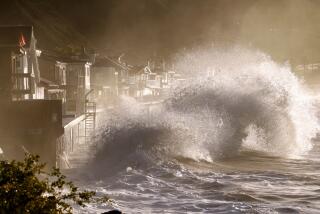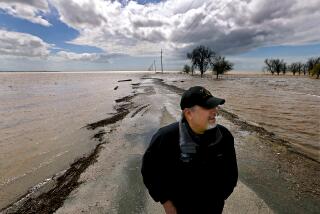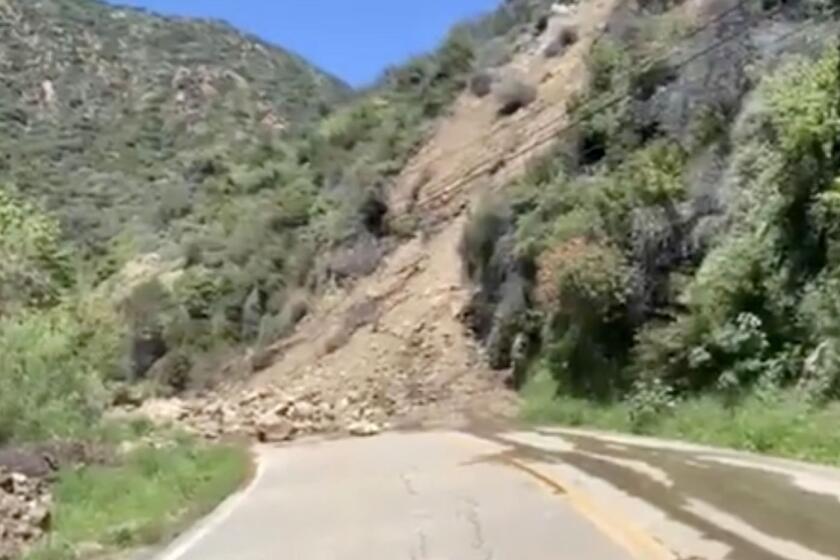A journey into the drylands
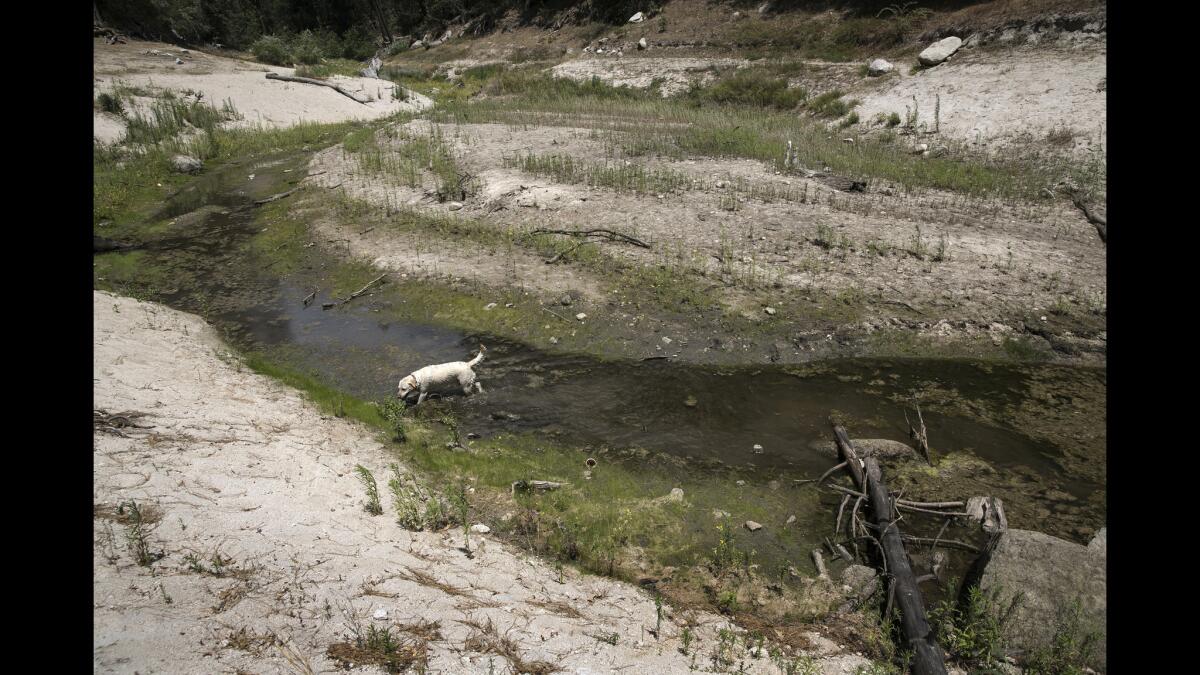
I think it’s going to rain.
The showers will start in October, and when the first drops hit warm pavement, I’ll breathe in and think nothing has ever smelled so good — until the scent of wet grass a second later.
It will rain off and on, soft but steady, all the way until May. Sometimes we’ll complain, “Another rainy day!” and then just laugh.
But I dreamed the same thing last year — and the year before that.
Maybe El Niño will save us.
Maybe not.
The only thing that’s certain is that this drought is changing California and the West.
So we’re going on a road trip, traveling between what was and what will be.
We’ll strike up conversations, hike to lakes that are disappearing, follow the rivers that are still running. We’ll take a detour or two when someone tells us there’s something we just have to see.
It’s summer, and we’re out to roam the drylands.
---
I live in the Central Valley. Photographer Robert Gauthier went to Fresno State. Before our departure, we made a couple of scouting missions through lands we knew (or at least thought we did).
It was my idea to stick to back roads and little-traveled byways. But now a truth: You can’t interview a road, and on our first drive we had seen no other human beings for two hours. There was no cell service, no radio stations.
We were somewhere in Mariposa County, winding through the Sierra foothills, on our way to Bagby.
To me it’s not a road trip unless you have a hat on your head, you can pick the day’s destination just because you like its name (Bagby, say), and you bring your dog.
Murphy was in the back seat. He kept waking up and licking Rob’s ear.
If you’re lucky, there is that one dog. The one that you swear can read your mind. The one you can trust in any situation.
Murphy is the dog that came after that dog.
Murphy was a puppy bent on destruction. Then he got a little older and became a master of escape. He’s still iffy on “stay.”
What’s most important for this trip is that Murphy loves water. His usual bark is deep; when he hits water he shrieks happy high-pitched yelps. He doggy-paddles in circles.
During this summer of drought, we’ll follow California’s waterways. Damp dog will be the scent of our journey, canine joy the counterbalance to our growing unease.
---
Eventually, we came to a town. In a manner of speaking.
There was a cafe, but dry weeds brushed up against white clapboard and cheery red-trimmed windows. Its abandonment seemed recent, as if the floors had been swept not that long ago.
We listened: Nothing.
But there was a house across the field. We started walking across wild grasses as pale as cream, as crunchy as kindling.
The house had a long front porch and dangling white Christmas lights. In the yard, there were a loud Chihuahua and a three-legged dog.
The owner, who didn’t want her name “in the paper or online or whatnot because I’m private-like,” said the dog’s leg got chewed off in a fight when he was a puppy.
“But it does not slow him down in the least,” she said.
She told us that the cafe had been closed awhile, the victim of the recession, not the drought, and that Bear Valley hadn’t been bustling since the Gold Rush. That was the point, she said: This place was for people like her who didn’t like talking to people.
If that was a hint, we ignored it. She seemed friendly enough. There was gunfire on the hill behind us, but she said it was nothing to worry about.
Down the road was Bagby. It was once an old mining ghost town, submerged under Lake McClure when the Merced River was dammed. (Maybe it’ll reappear if this drought lasts.) These days, McClure is so low, dozens of houseboats totter on a hilltop parking lot, a new ghost town up on blocks.
The road in front of the woman’s house was empty.
“There’s not a lot of people going to the lake,” she said. “Because it isn’t there.”
At Bagby we walked beneath watermarks. Far above us, three figures were standing on what was once a lookout point beside the lake. They waved. To get to them we scrambled up boulders that were usually underwater.
Jack Tipton, 77, retired Navy, used to be an engine mechanic on fighter planes. He lives in Modesto and was taking his sister Mary Lou Cotton and her son Tom, both from St. Louis, on a drought sightseeing drive.
“It’s the first time I’ve been up here to see for myself,” he said. “Farther up, by Yosemite, I was looking over the edge and thinking, ‘I know that’s the Merced River, but how can it be?’”
The last time he was at that spot in the river was about seven years ago, when he took his brother and his family.
“One of my nephews was standing on a rock. It was in the water. We took a picture. And now there’s barely a trickle,” he said.
His eyes watered. Memories cling to a place like photos on a refrigerator (the truest shrine in most homes). People remember how things used to look, and it reminds them of other things that used to be.
“My brother had cancer. He was dying,” Jack said. “But we still had a lot of fun that trip.”
---
In Kingsburg, where Highway 99 crosses the Kings River, summer evenings once meant folks floating by in inner tubes. This summer, the riverbed was hot sand and scratchy weeds.
But on July 3, officials released irrigation water from Pine Flat Dam to the northeast. Stretch by stretch, the river started coming back to life.
We had been on our way to the Yosemite area when we heard. We turned around and raced to Riverland Resort, an RV park on the riverbank next to the highway, home of Bullfrogs Bar & Grill’s
$2 drink specials.
The two women in the office told us it was private property so we couldn’t go to the river, only the bar. We could buy a membership and go to the river, but the owner didn’t like reporters so we couldn’t take photos. No, there wasn’t any public access nearby. If someone wanted to get to the water, they needed to know somebody rich with riverfront property.
We pulled into the long circular driveway of the first house on the river we came to. There was an expanse of spongy green grass. A two-story home with white columns was draped with red-white-and-blue bunting.
Rick Jackson was in his front yard putting final touches on preparations for a Fourth of July celebration for 300 to 500 people — friends and family, he said. There would be fireworks, food and prayer on the property he’d lived on for 40 years, ever since he was in fourth grade.
We told him we wanted to see the river when it first touched the dirt. He told us to hop in his golf cart.
The water was already a wavy dark line on the ground. But the line wasn’t moving forward with speed.
“Look at that,” Rick said. “Look at all those bubbles. It’s because the ground is so dry. It’s air where the ground is sucking the water straight down. Usually the river would be over our heads in no time.”
Behind us, two dune buggies came racing up, their drivers whooping and hollering. I tensed for a confrontation, but Rick gave a hearty laugh.
“I get such a kick out of these guys. I told my wife they make lemons from lemonade. Usually they’re out with their speedboats. No water and they’ve been racing around on these things.”
Nick Smoljan jumped out of the buggy.
“I was born and raised on this river and I’ve never seen anything like this!” he shouted to no one and everyone.
He was a gold miner. He said he worked in an underground mine near Mariposa during winters so he could race his flat-bottomed boat on the Kings River during summers.
Everyone figured the water was headed to Boswell Farms, the second-largest private water-rights owner in the state. It would be gone in a few weeks. But for now it was drawing a grateful crowd.
Carol Downs looked as if she might cry. She lived in the country, three miles away. All her neighbors’ wells were dry. Her own was sputtering. Her hope was that along the way to crops, enough of the Kings River water might seep into the aquifer to keep her well going through July or even August.
“I lived in a farming area my whole life, and I didn’t think the drought had anything to do with me until the day someone dug a new well and my faucet went dry for a day,” she said. “I get it now. I’m worried about our whole state.”
---
At Bass Lake, Murphy raced down the trail to Willow Cove. The first time
I took him to this pine-scented place he was a puppy and clung to me like a koala bear, still afraid of water.
On this hot day, the deep cove near Yosemite was only a strip of mud. I couldn’t smell the trees. They were too dry.
Around the bend, near Ducey’s on the Lake, which was now Ducey’s Not All That Close to the Lake, Margina Jones, Nikko Mizuno and Chance Moody had staked out a shady spot.
It was the Fourth of July.
There would be no fireworks. There was going to be a laser show. But people like to see some kind of flames, so Margina and her friend Bliss were to be part of a fire-dancing show. Margina had first seen fire dancing at a didgeridoo festival and went home and taught herself.
Nikko was doing a few yoga stretches and staring at the rust blotches of dying trees on the mountain across the lake.
“It’s so heartbreaking,” she said. “But I’m trying to think of it as an opening. Maybe it’s the way it’s supposed to be. California has always been a drought state.”
“I don’t know,” Chance said. “My friend, a ranger, told me they just had a meeting at Yosemite where they said this was the worst drought in the area in 1,200 years.”
A rich, gold afternoon turned to a lavender evening, then to a night tinted midnight blue.
People sat on docks over yard-high weeds. The lasers sent a few colored stripes over dying trees. It was the first Fourth in decades when fireworks hadn’t exploded in the sky, their colors reflecting in the lake.
It didn’t matter. It was a warm summer night. People wearing all manner of stripes and stars and sparkles ate ice cream cones. They line-danced to a country song.
They gasped over the fire dancers, making spinning wheels of flames with only a hint of human forms inside. The fire dancing was on a concrete patio, far from any vegetation. But there was a fire safety officer, a fire engine and four buckets of water.
When the deejay played Bruce Springsteen, a large family at the docks put their arms around one another’s shoulders and joined in loudly, half singing, half laughing: “Nowhere to run ain’t got nowhere to go. Born in the U.S.A.!”
The stars and the boat lights and strings of white lights reflected on a still Sierra lake. The air was soft with moisture, the pines were silhouettes, without a hint of dying.
I told myself, “I think it’s going to rain,” and tried to believe it.
For more of Diana’s journals on the road, go to https://drylandsca.latimes.com/
More to Read
Start your day right
Sign up for Essential California for news, features and recommendations from the L.A. Times and beyond in your inbox six days a week.
You may occasionally receive promotional content from the Los Angeles Times.
